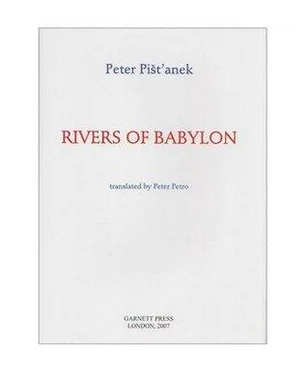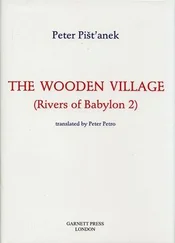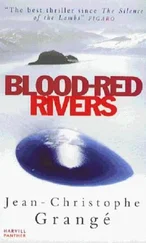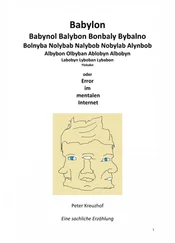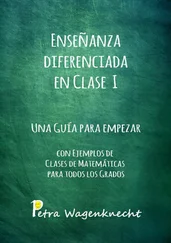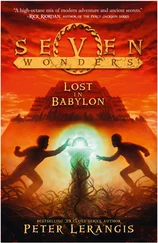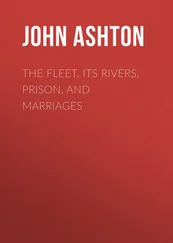Rácz finishes his vodka and orders another. Khunt is back in no time. He’ll take them. He takes his wallet out and counts the money. Soon, both men are sitting contentedly. If Khunt is interested, Rácz can get an unlimited quantity of those cassettes. Here are the brands and prices. As usual, Rácz will consider a discount.
Khunt nods in agreement. They always come to terms. Khunt likes to deal only with reliable people. And you can certainly rely on Rácz.
Rácz doesn’t twitch an eyebrow, of course. He lacks any capacity for genuine emotion and has no idea how to react. He won’t be humble and refuse to accept praise, since he is certain that Khunt is right. He doesn’t even nod; he just coughs and orders another vodka in an unusually muted voice.
After Khunt’s departure, the small-time currency dealers show up with their daily take of marks and schillings. They sit down in turn and hand Rácz their modest loot. Rácz pays them off on the spot. The Albanians come, too. They want to do a deal, too. Rácz is friendly, but does not suck up to them. When he can, he’ll meet them halfway, but he warns them he doesn’t want their dirty snouts hanging about the hotel. On the pavement is OK, but they mustn’t dare come in! He’s the boss inside. The Albanians put on an air of cool defiance, but they obey. They know that Rácz is powerful. The cops are in his pocket, and the hotel staff do as he says. The Albanians wouldn’t stand a chance.
“How’s it going?” Video Urban calls to him. Wearing a new leather jacket, he stands at Rácz’s table, deciding whether to join him or not. Rácz silently points to a free chair. Urban sits down.
“I haven’t seen you for ages,” says Rácz. “I suppose that friend of yours, the Swede, showed up, did he?”
“What do you mean?” says Urban, taken aback and beginning to regret joining the stoker.
“Nothing,” says Rácz, “just asking what’s kept you, as I haven’t seen you for a long time. You haven’t brought me any marks or schillings lately.”
“I’m not doing it any more,” says Urban. “I’ve finished with that.”
“Really?” The stoker is incredulous. “Found something better? Are you working with that camera of yours, like you meant to?”
Urban nods.
Rácz shrugs. “I don’t know,” he says. “Who’d want to piss about, going to weddings and baptisms? Not me, I tell you.”
Video Urban shakes his head. Urban doesn’t piss about anywhere. He works at home, mostly. People come to him.
Rácz finds that strange. “How come?” Does the whole wedding come to Urban’s place?
“No,” says Urban. He doesn’t do weddings. Hasn’t Rácz read his ad in the free-ad paper?
Rácz shakes his head: Rácz does not read the papers. He doesn’t read anything.
If he did, Urban thinks, he’d have realised.
Rácz is fed up exchanging banter with this brat of a currency dealer. Everyone does as they think best, he believes. If Urban thinks this will make him more money, fine! Rácz couldn’t care less. But now that it doesn’t matter, would Urban tell him how he managed to clean those buses out of currency?
Urban smiles, even though the memory is unpleasant one. It’s very painful, in fact. “Well, I did it all at customs.”
“Customs!” Rácz repeats.
“Yes, customs,” says Video Urban. “But I wouldn’t recommend it.”
“Why not?” Rácz is curious.
“Too risky. It’s full of strange cops.”
“That wouldn’t interest me,” says the stoker indifferently. Rácz only works here in the hotel. Anything outside is of no interest to him. But he does know one thing. A big raid on the currency dealers is set for the day after tomorrow, and the cops are coming all the way from Prague. Urban should watch out. Rácz tells him just in case, even though he knows Urban has left the racket and so is in no danger.
“You’re right,” says Urban. Urban doesn’t do money-changing any more. If he shows up, it is just to have a coffee and a shot of Becherovka. Money isn’t everything.
Rácz throws up his hands: that is, after all, just Urban’s personal opinion. Rácz doesn’t agree. What are you without money? Shit. An absolute nobody.
Video Urban takes a sip of Becherovka and says nothing. “That’s true of you,” he thinks. “Even a dog wouldn’t bark at you, if you didn’t have money.” But he doesn’t say it. Urban is an artist. He doesn’t have to be a hustler.
Rácz has his opinion of Urban, too. Lately Urban has been getting too big for his boots. As if he were somehow better than others. As if his shit didn’t smell. He wants to make money, but he wants to stay clean, too. But that won’t work. You’re either as poor as a church mouse, or you get your hands in shit. Rácz unwittingly raises his hands to his eyes. They’d never been so clean and well kept. If he wants, he’ll get a manicure today. “Either I have the money for it, or I don’t,” the stoker tells himself.
* * *
As Christmas approaches, the stoker can’t resist an urgent flying visit. He arranges it all in one day. He leaves two days’ dry rations for the gypsies in the boiler-room and orders Ďula to wax the hotel minibus. They find the way to Rácz’s native village on the road atlas. Meanwhile, Rácz gets some presents together: French perfume for Eržika, a bottle of Cognac, Martell. He thinks of his Uncle Endre: another, cheaper bottle of Cognac. Rácz gets in the minibus and Ďula drives off.
On the way there Rácz is quiet. He smokes cigarettes and takes swigs of rum from the bottle. When they reach the village, first they drive up and down, so that everyone can see the car Rácz is returning home in. Pity they don’t bump into proud Feri Bartaloš; Rácz would love to pay him back for splashing mud all over him. This spoils the stoker’s mood a bit.
They park in front of the Kišš house. Ďula carries the presents. “Is that you?” Kišš is surprised as he noisily gets off his chair. Mrs. Kišš runs in from somewhere, dragging a blushing Eržika by the hand. Rácz looks at her with different eyes now. He no longer feels the torments of love; the tremors are over, so are the butterflies in his stomach and the embarrassment. He is an experienced man of the world and Eržika is not such a great beauty.
Rácz hands out the presents.
“I can see you’re doing well,” says Kišš. “What do you do?”
“I’m a stoker,” says Rácz evasively.
“And do they pay well?” Kišš asks, touching the sleeve of Rácz’s new Italian-styled jacket. He winks at Mrs. Kišš and shows her Rácz’s sleeve. She touches it, too. They murmur their approval. Kišš grabs Eržika’s hand and forces her to feel the quality of the suit. Blushing, she pulls her hand away.
“They pay well,” says Rácz. And he makes a bit on the side, as well.
“What do you mean, on the side?” Kišš doesn’t understand.
“Just — on the side,” says Rácz. He sorts things out, this and that, and he gets his share.
“So it must be him, then!” Kišš yells, and bangs the table for joy. “It’s him! It is him, after all!”
Rácz is puzzled, but doesn’t show it. He says nothing and waits. Kišš stops laughing and has a bad coughing fit, gesticulating with his arms and legs. Kišš’s brother is a butcher in the next village, as Rácz well knows. Recently he imported a Mercedes from Austria. He had to buy hard currency in the city. They sent him to some hotel to see a Mr. Rácz. He was a rich powerful man. He doled out the money, which he kept in an enormous box. Kišš’s brother had never seen so much money in his life. And he’s a village butcher. Then he told Kišš all about it. “Suppose it’s your Rácz, the one you sent off to the city?” Kišš’s brother asked him. “Go on with you!” Kišš had laughed then. The age was right, so was the way this Rácz looked. Kišš had one more thing to wonder about. He woke up many a night, wondering: “What if it is him?”
Читать дальше
